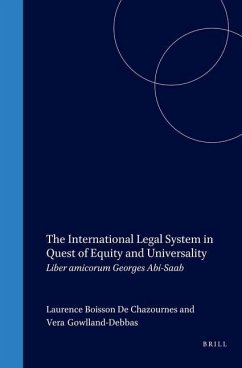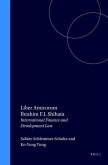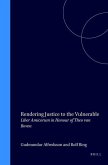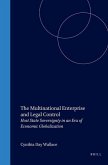Georges Abi-Saab began his writing and teaching at a time when the process of decolonization, and thereafter the quest for emancipation, began to make its far-reaching impact on the international scene, producing significant changes in the international environment, both quantitatively in increasing the number of nation-States and qualitatively in changing patterns of interests and claims. This was bound to result in new pressures on the international legal system itself and in a questioning of the traditional Eurocentric content of international law. In his work and teaching Professor Abi-Saab viewed the dynamics of international law as a function of two driving forces: the emergence of the third world and the sense of injustice. In his view, the first driving force - the emergence of the third world - raised the problem of exclusion: exclusion from participation in the elaboration of international law and the decision-making process, and exclusion as beneficiaries of the resulting rules of international law. At the same time, this new force introduced diversity into the international scene, reflecting the richness of the international community in its different facets. This process remains relevant today, reflecting the contemporary problem of exclusion of new actors as well as their quest for participation. The second driving force - the sense of injustice - posed a teleological problem for him, that of defining community values in order that they capture the different facets of justice, whether formal or distributive. So long as there is no effective organic structure, international law in his view will continue to remain effectiveness-oriented, reflecting rather thanimpacting on the structures of power. Nevertheless, it is undeniable that there is an on-going process of development of community values and interests; as Georges Abi-Saab wrote with reference to international crimes: law, like all social phenomena, is a continuous unfolding, a
Hinweis: Dieser Artikel kann nur an eine deutsche Lieferadresse ausgeliefert werden.
Hinweis: Dieser Artikel kann nur an eine deutsche Lieferadresse ausgeliefert werden.








